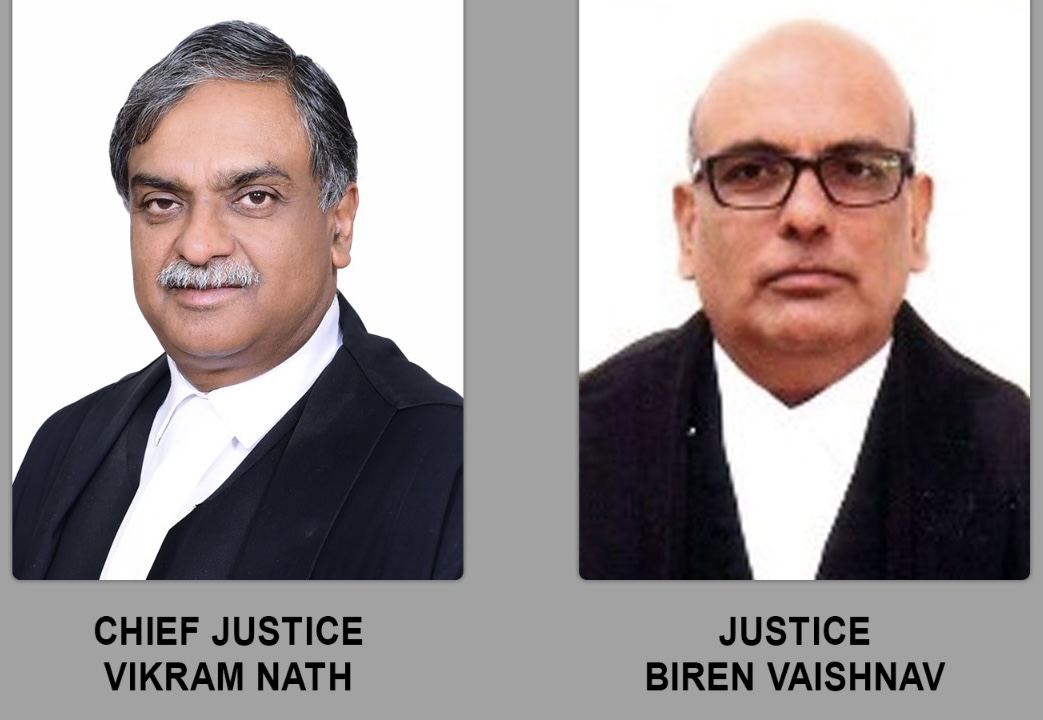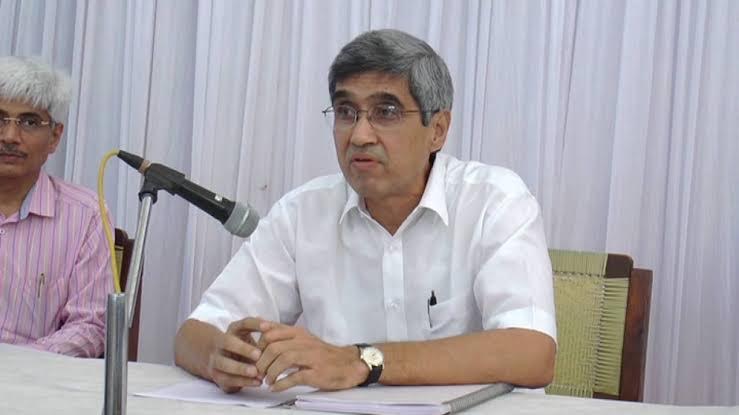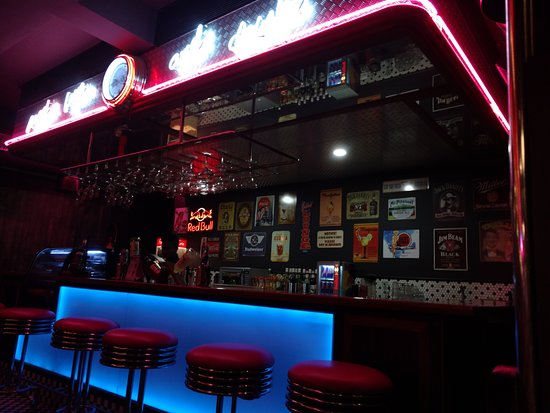Petitions cite the right to privacy to question the 1949 law; state says redefining laws based on the citation like ‘inviting bull to a china shop’
The Gujarat High Court on Monday accepted a batch of petitions challenging the provisions of Gujarat Prohibition Act, 1949, which bans the manufacture, sale and consumption of liquor in the state. It should be noted that the petitions are not challenging the prohibition policy per se but focusing on the liberty an individual is endowed upon by the Constitution of India.
The petitions had challenged the validity of certain sections of the dry law mainly on the ground of right to privacy, and whether it can be interpreted for permission to drink liquor in private places.

A bench comprising Chief Justice Vikram Nath and Justice Biren Vaishnav rejected the application of the state government and the preliminary objection raised by the Advocate General that stated that the pleas were not maintainable before the high court as the Supreme Court had in 1951 upheld the validity of the entire Prohibition Act. Advocate General Kamal Trivedi had submitted that the HC has no jurisdiction to hear the issue and it is not permissible either.

The government counsel argued that if one wants to improvise or correct the law in light of the right to privacy, a right conferred by the apex court in 2017, one will have to approach the top court. He submitted that the law cannot be defined and re-interpreted by citing the right to privacy, because its application to other laws is like a ‘bull in a china shop’.
The petitioners, on the other hand, had argued that the matter should be taken up on merits, as the provisions challenged in the pleas are materially different from what they were in 1951 as they have been amended over the years.
A senior advocate from the women’s right group AWAG, Prakash Jani concurred with the Gujarat Government’s stand even as he went on to say that only those who work for the downtrodden could appreciate the prohibition policy. The state of Gujarat is ranking top in per capita income in the country due to the existence of the prohibition policy, he said.

On the other hand, the petitioners’ advocates reiterated that the ground of right to privacy was available to them now and it did not exist in 1951 when the apex court decided on the validity of the law. Hence the government’s argument does not stand that the validity of the law cannot be re- evaluated on this ground.
The petitioners, through senior advocates Deven Parikh, Mihir Thakore, Mihir Joshi and Saurabh Soparkar, also submitted that the SC had not judged the validity of the main sections 12 and 13 of the Act, which prohibits the consumption and which is the soul of the Act. A senior lawyer pointed out from the SC judgment that the dispute was not raised with regard to the validity of these sections. Therefore the challenge is entirely new and the high court can hear the issue.

The court agreeing to hear the petition comes as a relief for the petitioners, who say that the government cannot restrict people’s choices about what they can eat or drink within their private places. The matter will come up for hearing on October 12.
Vibes of India deep dives into the Prohibition Policy of Gujarat and the current petition.
What is the petition about?
The petition is challenging a few sections of the Gujarat Prohibition Act, 1949 in the Gujarat High Court.
When was prohibition introduced in Gujarat
The first Act that curtailed alcohol in Gujarat was interestingly way back in 1878. Gujarat and Bombay were one State then and the Bombay Abkari Act dealt with levying heavy taxes on alcohol. But it should be note that askari which means taxes was introduced for the purpose to augment revenues. They was no holy grounds for the Act.
Amendments were made to this Act in 1939 and 1947 and there was total prohibition announced in Gujarat and Bombay.
From December 28, 1948, the existing policy went dormant which means there was no prohibition and citizens could actually drink in Gujarat and Bombay.
Then in 1940, the government reconsidered the question of prohibition and it was decided to undertake and enforce a policy of “total prohibition” in the whole of the Province of Bombay on the basis of a four-year plan. The Prohibition Act 1949 said that alcohol consumption should not be allowed because it deteriorates health. Prohibition enhances health, the Act had maintained. Interestingly then the Constitutent Assembly of India had observed that “prohibition should not be there and thus the law “has no constitutional prehistory to it.”

1960 onwards.
While following the reorganisation of Bombay province into the states of Maharashtra and Gujarat in 1960 , Gujarat chose to pursue a complete prohibition policy. Actually on the grounds that
Mahatma Gandhi was born in Gujarat and this was as a mark of respect to him. Maharashtra did away with the policy and amended its Act.
1960-2011 in Gujarat
The Prohibition Policy in Gujarat was reduced to a joke. Interestingly what was earlier said in defence of the prohibition policy became the counter defence. Gujarat laws said permission to consume alcohol could be given only on basis of a registered allopathic doctor prescribing that alcohol was good for health! Even now all permits in Gujarat can be given to resident Gujaratis only on health basis.
The prohibition policy before the 2000’s was so skewed that everyone from Gujarat seeking permission to drink had to fill up a weird form which asked, “Name of the Drunkard”and name of the Drunkard’s father in the form which became a subject of scoff and ridicule.
2011 onwards
The Gujarat government renamed the Act as Gujarat Prohibition Act in 2011. The drunkard references were removed.
However even now residents of Gujarat can apply for a “permit” to drink only if she/he/others were minimum 40 years of age and were recommended by doctors that they needed to consume alcohol for health management and enhancement reasons.
A lot of water has passed through the Sabarmati but Gujarat continues to hang on to the Prohibition policy in the name of Mahatma Gandhi. As Amal Shah, a young businessman tells us, ít is such a sheer hypocrisy. Bootlegging is rampant. All possible brands are available in Gujarat and still we hand to an archaic Prohibition policy. Gujaratis are considered to be progressive people but we are hypocrites too”.
What does Gujarat lose because of the Prohibition Policy.
Millions of revenue in forms of sales tax, GST and other taxes that would be levied if alcohol was legally available to all without permits.
Gujarat has a history of police corruption and bootlegging going hand in hand.
What does Gujarat gain because of the Prohibition policy?
Those espousing that Gujarat should have a strict prohibition policy say that Gujarat is safe for women because of this. Also, over all crime rates are low because of the Policy in place.
Vibes of India has no personal views on these but believes that unlike several States where there is no alcohol, the condition of women in underprivileged and mariganilsed sections of the society are worse because of rampant alcohol availability and consumption. A senior IPS officer from Gujarat cadre admits on conditions of anonymity that cheap spurious liquors in fact cause more damage than liquor sold by government approved shops. They also say that police corruption can be largely curtailed if the prohibition policy is relaxed. Right now, every under privileged area in Gujarat has local bootleggers who give a fixed monthly amount called happy to the police cadre. The Government loses out on taxes and spurious liquor is this way wrongly encouraged.
Example of Hypocrisy over prohibition in Gujarat
- Any person travelling from anywhere else in India can get a drinking permit from the airport itself by showing their residential proof and can buy alcohol from dozens of five stars hotels but a Gujarati resident cannot.
- Mahatma Gandhi is a Gujarati who is very well respected and honoured. But he is also the Father of the Nation. If we talk of one nation, one election there should also be one nation, one prohibition policy is an argument. But this is not possible because prohibition is a State subject and not a Central subject so far.
- If you are from Porbunder the birth place of Mahatma Gandhi but currently stay in Mumbai, you can show your residence proof and drink in Porbunder.
- Any tourist or gatherings or international summits held under the aegis of Gujarat government in any towns can apply for mass permits. For example, a Gujarati tycoon could host an international delegation and throw them a lavish party at any five star with mass permits. There would be a condition. The host, even if he is a permit holder cannot go to that section to entertain his/her/ their guests.
- If there are three sisters or brothers or friends and they all have official permits to drink but if they live separately, even in separate homes in the same society, they cannot meet up together for drinks. The drinking permit specifies that you can drink alone or with anyone who is living in your residential premises only who is above 40 years old and has a separate health permit. No friends or colleagues can drink together.













With changing times, one must change statutes! Biggest protest seem to be coming from parallel channels , who are till now biggest gainers of Huge value addition they get for
changing time should evolve change in statues. It seem Biggest protest May come from long established beneficiaries of parallel channels , who illegally earned billions till date for their service of supply with huge value addition. In 21st century , this Taboo needs to be relooked for a Healthy open society with self discipline.